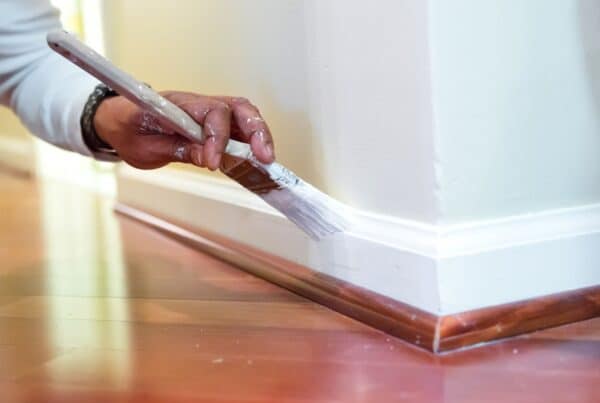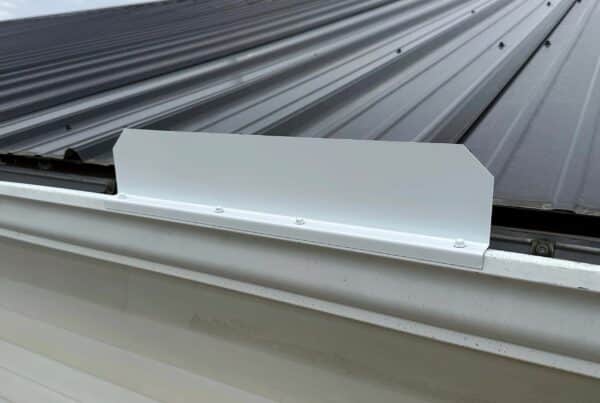
If you notice that your air conditioner is leaking water, it usually means there’s a problem with how it’s draining moisture. In most cases, it’s caused by a clog, a damaged part, or an issue with the system’s cooling process. Some fixes are simple, but others require a professional to prevent further damage.
Below, we’ll explain the most common reasons your AC leaks water, how to spot the cause, and ways to prevent it from happening again.
What It Means When Your AC is Leaking Water
Air conditioners naturally remove humidity from the air as part of the cooling process. Inside the unit, warm air passes over cold evaporator coils, causing moisture to condense. This water drips into a drain pan and flows out through a condensate drain line.
When something interrupts this process, the water can overflow or leak where it shouldn’t. If left untreated, it can cause water damage, mold growth, or system breakdowns.
Below we will discuss the 5 common causes of a broken AC unit and why it may be leaking water.
1. Clogged or Dirty Condensate Drain
A clogged condensate drain line is one of the most common reasons an AC leaks water. Over time, dirt, dust, algae, and even mold can build up inside the pipe. This blockage prevents water from draining properly, forcing it back into the unit and out onto your floors. If you have a float switch, the good news is it will shut down the system to avoid more damage.
The cost of unclogging a drain is anywhere between $75 to $650 depending on the severity of the issue.
Signs of a clogged drain line include:
- Water pooling around your indoor unit
- Musty odors coming from vents
- AC shutting off unexpectedly due to safety sensors
Simple maintenance tip: Once or twice a year, flush the drain line with a mix of vinegar and water to help prevent buildup. For more detailed upkeep tips, see our AC maintenance guide.
2. Damaged or Rusted Drain Pipe
A dirty air filter puts the AC System into overdrive and can cause it to stop working properly. In addition, it can keep the air from flowing over the evaporator coil and cause the evaporator coil to freeze. When the frozen coil melts, the water can cause the pan to overflow. This will also cause the ac unit to be leaking water and mold can form.
Air filters cost between $5 to $50 depending on the size and type of filter you purchase.
The drain pan sits under your evaporator coil to collect condensation. Over time, especially in older units or in Florida’s humid climate, this metal pan can rust or crack. When it does, water will leak straight out instead of flowing to the drain line.
Replacing a drain pan is usually a quick repair for a technician. In some cases, upgrading to a corrosion-resistant pan can extend the life of the part and reduce future leaks.
3. Frozen Evaporator Coils
If your evaporator coils freeze, the ice will eventually melt and overflow the drain pan. Coils freeze when there’s restricted airflow or low refrigerant levels.
Common causes include:
- Dirty air filters
- Blocked return vents
- Low refrigerant due to a leak
You might notice weak cooling, visible ice on the unit, or your AC running longer than normal. Changing your filters regularly and keeping vents open can help prevent this problem.
4. Low Refrigerant Levels
Refrigerant is essential for the cooling process. When levels are low, the pressure inside the system drops, causing the coils to freeze. Once that ice melts, the excess water can leak.
Low refrigerant can be caused by small leaks in the lines or connections. Warning signs include warm air from vents, longer cooling cycles, or hissing sounds near the unit. Because refrigerant is a regulated substance, repairs should always be handled by a licensed HVAC technician.
5. Improper AC Installation
If your AC was not installed level or the drain system was set up incorrectly, water may not flow properly into the drain line. This can lead to constant leaks, even in a brand-new system.
Professional installation ensures your AC sits at the right angle and all drainage parts are connected correctly. This is especially important in Florida homes, where high humidity means your AC works harder to remove moisture.
How to Prevent AC From Leaking Water
While some leaks are unavoidable, regular maintenance can greatly reduce your risk.
Prevention tips:
- Change your air filters every 1 to 3 months
- Flush your drain line with vinegar and water twice a year
- Schedule a professional AC tune-up before summer
- Keep the area around your indoor unit clean and clear

Florida homeowners should also be aware that high humidity makes maintenance even more important. Regular care helps your AC run efficiently and prevents costly water damage.
Related Questions People Ask
Can I still run my AC if it’s leaking water?
It’s not recommended. Running it could cause more damage or lead to mold growth. Turn it off and investigate the cause.
How much water is normal from an AC?
It’s normal for an AC to produce some water, especially in humid climates. However, it should drain outside, not inside your home.
Is AC water dangerous?
The water itself is not dangerous, but leaks can create a breeding ground for mold and bacteria.
What’s the difference between water and refrigerant leaks?
Water leaks are usually from condensation problems, while refrigerant leaks involve the cooling fluid and require professional repair.
Keep Your AC Running Smoothly
If you’re wondering why your AC is leaking water, it’s often due to a clogged drain line, damaged drain pan, frozen coils, low refrigerant, or installation issues. Addressing the problem quickly can prevent bigger repairs and keep your home comfortable.
At Honor Services, we help homeowners in Florida keep their AC systems running at peak performance. If your unit is leaking, our experienced team can find the cause and fix it fast.
Contact us today to schedule an inspection and protect your home from water damage.



